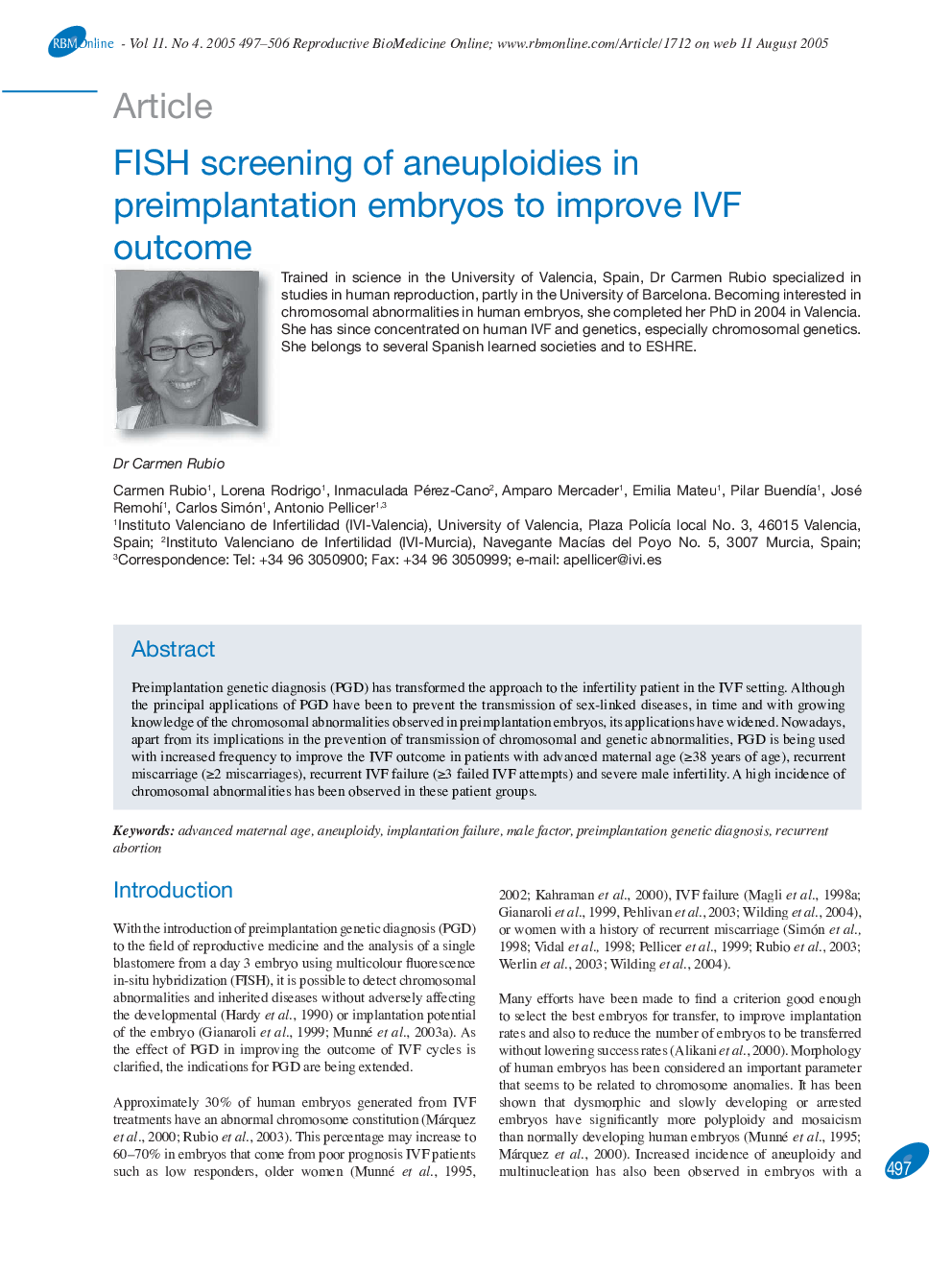| Article ID | Journal | Published Year | Pages | File Type |
|---|---|---|---|---|
| 9335223 | Reproductive BioMedicine Online | 2005 | 10 Pages |
Abstract
Preimplantation genetic diagnosis (PGD) has transformed the approach to the infertility patient in the IVF setting. Although the principal applications of PGD have been to prevent the transmission of sex-linked diseases, in time and with growing knowledge of the chromosomal abnormalities observed in preimplantation embryos, its applications have widened. Nowadays, apart from its implications in the prevention of transmission of chromosomal and genetic abnormalities, PGD is being used with increased frequency to improve the IVF outcome in patients with advanced maternal age (â¥38 years of age), recurrent miscarriage (â¥2 miscarriages), recurrent IVF failure (â¥3 failed IVF attempts) and severe male infertility. A high incidence of chromosomal abnormalities has been observed in these patient groups.
Keywords
Related Topics
Health Sciences
Medicine and Dentistry
Obstetrics, Gynecology and Women's Health
Authors
Carmen Rubio, Lorena Rodrigo, Inmaculada Pérez-Cano, Amparo Mercader, Emilia Mateu, Pilar BuendÃa, José RemohÃ, Carlos Simón, Antonio Pellicer,
